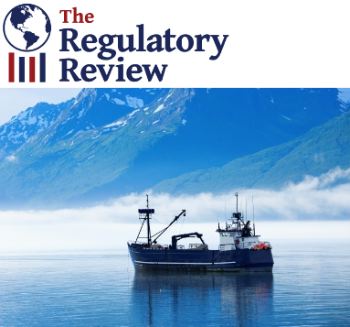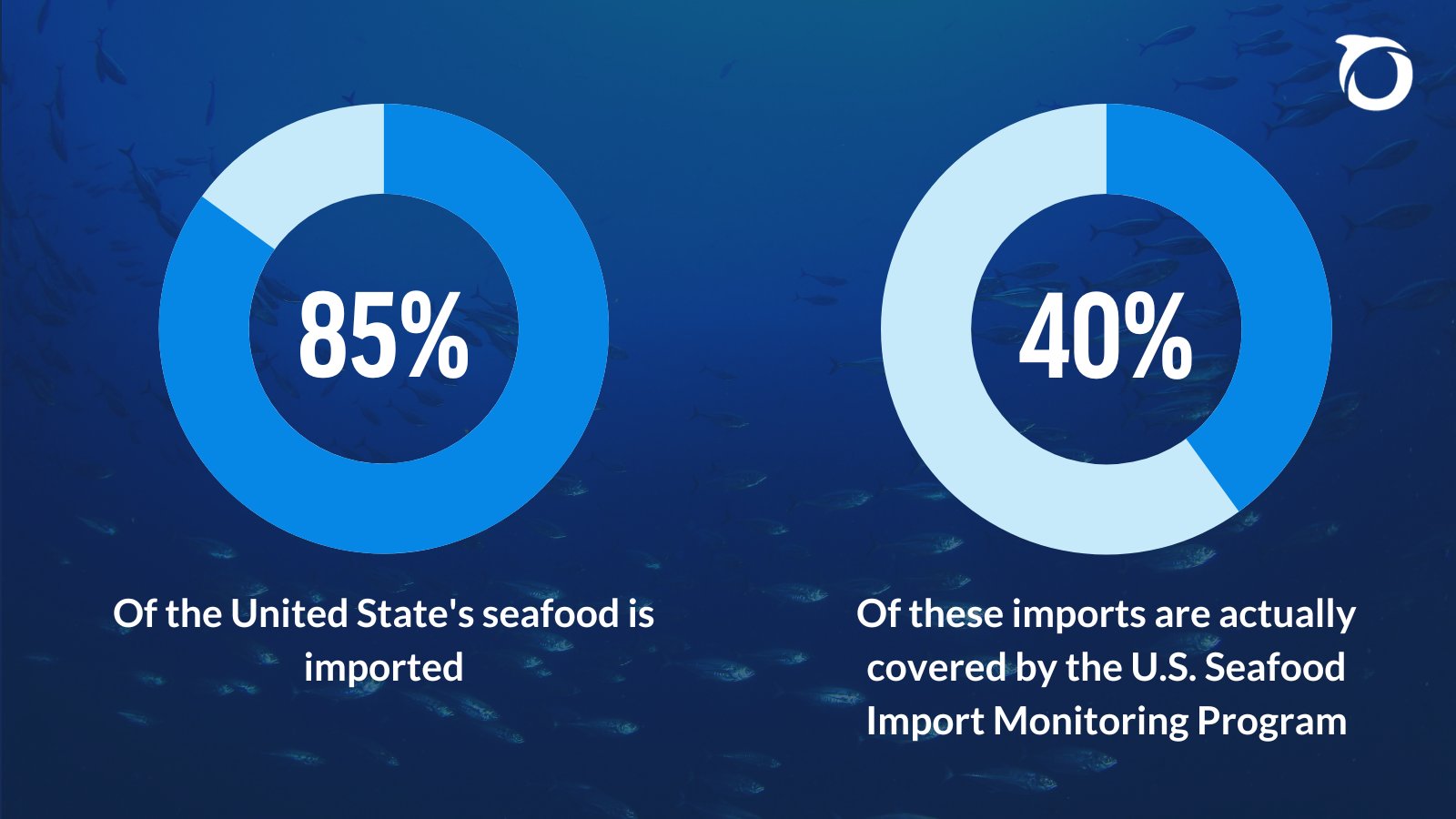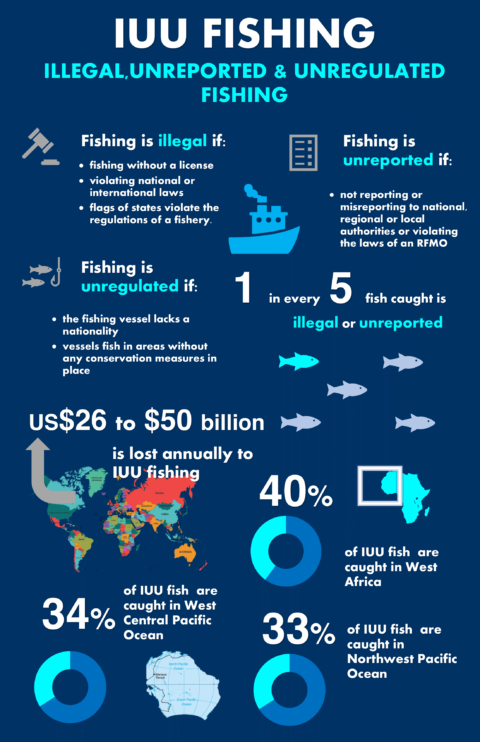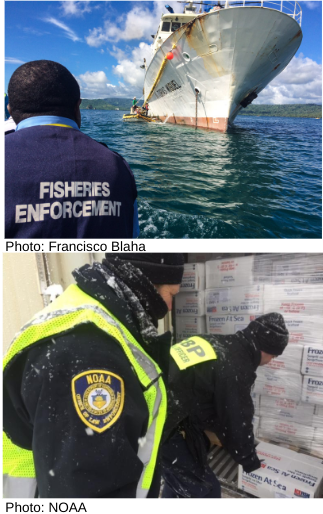|

Photo: The Regulatory Review/FIS
Tackling Illegal, Unreported and Unregulated (IUU) fishing
 UNITED STATES
UNITED STATES
Wednesday, October 09, 2024, 00:10 (GMT + 9)
A scholar is urging lawmakers to strengthen regulations against illegal fishing practices.
Americans spend over $100 billion annually on seafood, but experts warn that destructive fishing practices are depleting global fish stocks, further endangering this vital food resource, Alyson Diaz writes for The Regulatory Review.
In a recent article, Madison Landry from Louisiana State University calls on the U.S. government to take stronger action against illegal and unregulated fishing. As one of the world’s largest seafood importers and producers, the U.S. has a critical role to play, she argues. Landry highlights gaps in the Seafood Import Monitoring Program (SIMP) and advocates for expanding its coverage to include all species and every stage of the supply chain.
 SIMP, overseen by the National Oceanic and Atmospheric Administration (NOAA), currently requires importers to report data on where, when, and how certain high-risk species were harvested. This helps combat illegal fishing activities, which undermine sustainable practices by sidestepping laws and regulations. Illegal practices include fishing without a license, misreporting catches, fishing in restricted zones, targeting prohibited species, and operating in unregulated areas. SIMP, overseen by the National Oceanic and Atmospheric Administration (NOAA), currently requires importers to report data on where, when, and how certain high-risk species were harvested. This helps combat illegal fishing activities, which undermine sustainable practices by sidestepping laws and regulations. Illegal practices include fishing without a license, misreporting catches, fishing in restricted zones, targeting prohibited species, and operating in unregulated areas.
While Landry acknowledges SIMP’s role in identifying illegal fishing, she points out that many violations still go undetected. For instance, a 2019 report by the U.S. International Trade Commission revealed that the U.S. imported $2.4 billion worth of seafood linked to illegal, unregulated, and unreported (IUU) fishing.
Currently, SIMP only covers a limited number of species, excluding significant parts of the seafood supply chain, such as bait. Landry warns that this narrow focus allows illegally caught fish to enter the market, undermining efforts to conserve ocean resources and combat overfishing.

Source: Oceana
Landry notes that only 13 species are classified as high-risk by NOAA, leaving popular seafood choices like clams, Alaska pollock, and salmon outside SIMP’s purview. As a result, 60% of seafood imported to the U.S. is not subject to SIMP’s oversight, a gap that leaves the door open for illegal activities, Landry cautions.
To address these issues, Landry proposes expanding SIMP to adopt a comprehensive “bait-to-plate” approach, which would cover all species and trace seafood throughout the entire supply chain. This would require the federal government to monitor seafood from the moment it’s caught until it reaches the consumer, offering greater opportunities to detect illegal fishing practices.

Landry suggests that federal lawmakers mandate reporting for all imported seafood species, which could deter illegal fishing operations from mislabeling their catches to evade detection. Broadening SIMP to include all species would also ensure that seafood consumed in the U.S. is legally and sustainably sourced, she emphasizes.
 As part of this expanded model, NOAA would require seafood importers to provide detailed information about their supply chains and enforce stricter labeling requirements. Landry argues that forcing fishermen to disclose catch details, such as country of origin, would give regulators more tools to identify unlawful practices. The added transparency would likely discourage fishermen involved in illegal activities from attempting to import their catches into the U.S. As part of this expanded model, NOAA would require seafood importers to provide detailed information about their supply chains and enforce stricter labeling requirements. Landry argues that forcing fishermen to disclose catch details, such as country of origin, would give regulators more tools to identify unlawful practices. The added transparency would likely discourage fishermen involved in illegal activities from attempting to import their catches into the U.S.
Critics of SIMP expansion argue that the additional compliance costs could lead to job losses in the seafood industry. Landry counters that illegal practices pose a greater long-term threat to legitimate businesses. Expanding SIMP would protect law-abiding fishermen by reducing competition from those engaging in illegal fishing, she explains.
Landry acknowledges that even with expanded coverage, SIMP alone cannot eliminate all illegal seafood imports. To improve enforcement, she recommends that regulators leverage technology to track vessels engaged in illegal fishing. For example, importers could be required to provide unique maritime identification as a condition for trade, enhancing the ability to trace illegal activities.
In conclusion, Landry believes that applying SIMP to all species from “bait-to-plate” would significantly reduce the amount of illegally caught fish entering the U.S. market. Strengthening the program would not only curtail harmful fishing practices but also help protect global fish stocks for future generations.
[email protected]
www.seafood.media
|



